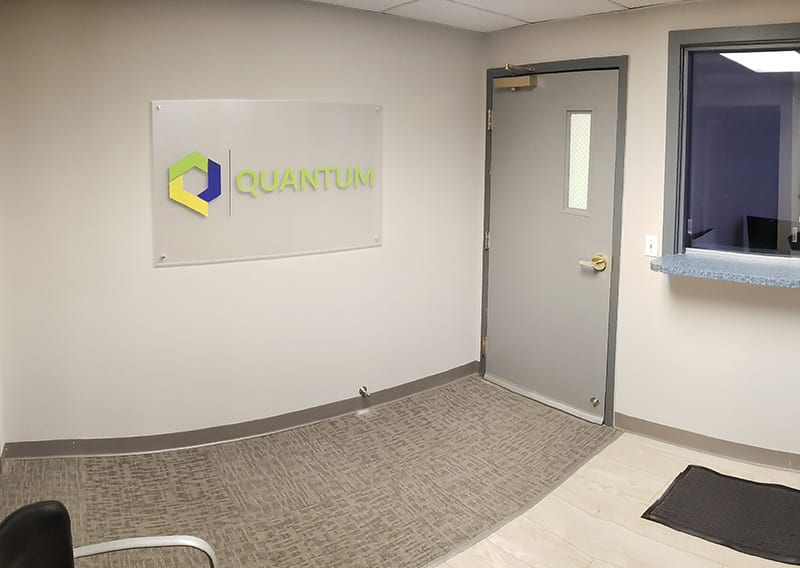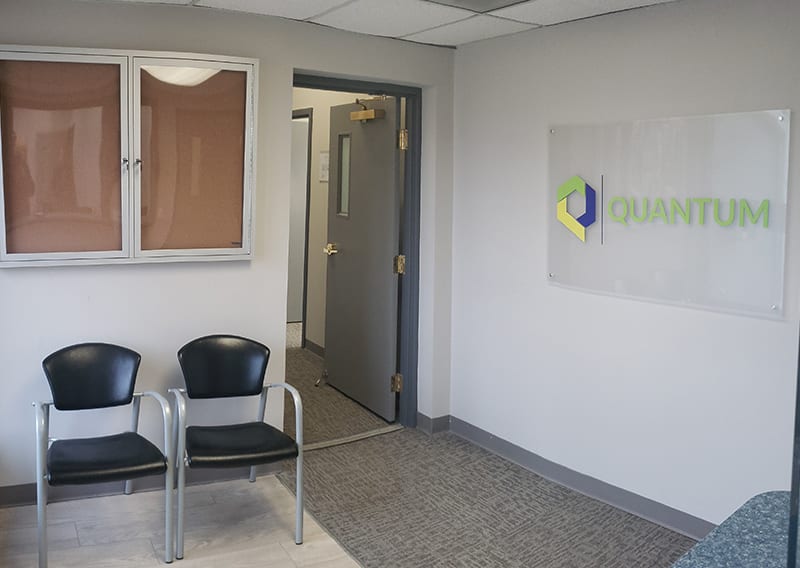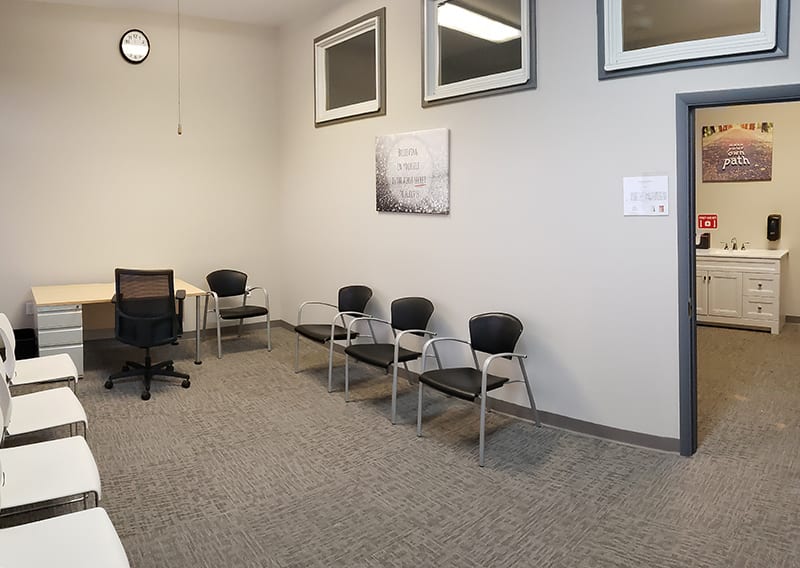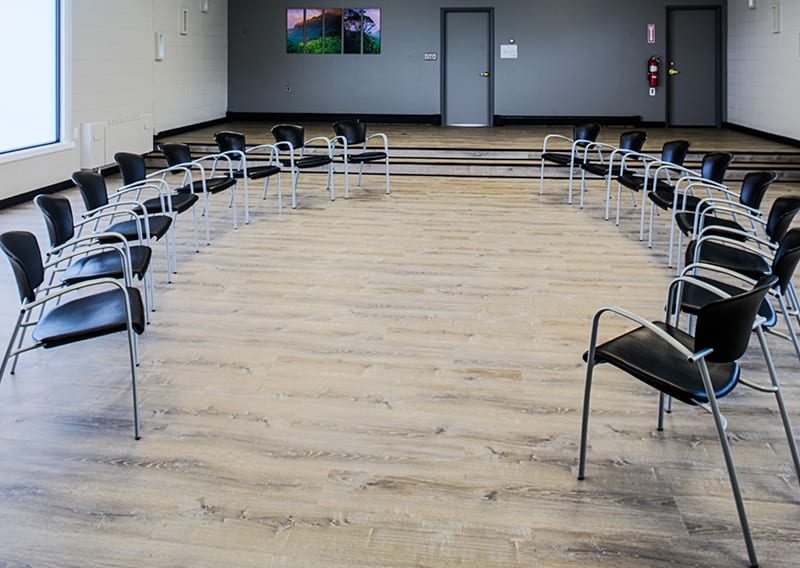Top Rated Drug Detox Program in Edison
When someone’s life is being affected by drugs or alcohol, it sometimes feels like there is no way out. They may have already gone through several cycles of abusing one substance or another, quitting, going through withdrawal symptoms, only to start again. This happens to a lot of people who try to stop using drugs or stop drinking alcohol on their own. That’s why at Quantum Behavioral Health Services we have developed many different types of treatments within our levels of care that can help people go from struggling with Substance Use Disorders to leading a clean and sober lifestyle.
If you or one of your loved ones is seeking answers to problems with drugs or alcohol, call us today at Quantum. Our medical professionals and substance abuse treatment experts will help create a customized treatment plan just for you that is suited to your needs. There is no reason for anyone to fight issues with abuse and addiction on their own. We are here to help.
Photo Gallery
Click photos to enlarge
Are You Ready to Begin Your Journey to Recovery?
You could be completely covered. Verify Your Insurance Today.
The Quantum
Process Outpatient Rehab NJ
1. Make the Call
Contact our Quantum Team at
(609) 993 – 0733 to get started.
2. Complete
Your Intake
This streamlined process includes a series of questions and discussion of your unique needs and goals.
3. Get the Best Care Team Possible
After your intake, you’ll meet your Care Team, a group of amazing professionals dedicated to helping you make recovery reality.
4. On-Going Support
After you meet your Care Team, you’ll start to receive treatment based on a Care Plan that’s designed to help you achieve and sustain your recovery.
- What Is Detox Like?
- What to Expect During Drug Detox?
- Symptoms of Detox by Drug Type
- Benzos
- Opioids (Heroin)
- Stimulants (Cocaine, Meth etc)
- Bath Salts
- Marijuana
- Dxm/Cough Syrup
- Fentanyl
- Hallucinogens
- Oxycodone
- Prescription Drugs
- Acute Detox
- Sub Acute Detox
- Why Choose Quantum Behavioral Health for Drug Detox
What Is Detox Like?
No matter what other forms of treatment a person chooses, it is imperative if they are dependent or addicted to a substance that they go through alcohol detox or drug detox before moving on to any type of substance abuse rehab. This is due to the fact that someone must remove all of the substances and toxins from their body before they begin individual therapy and group counseling, otherwise, they are not truly in a rehab phase of recovery.
Alcohol detox and drug detox are the processes of stopping the consumption of any type of substance and allowing it to leave a person’s body, often with the assistance of support processes. This is referred to as medical detox and is a safe, supervised way for an individual to go through the withdrawal symptoms associated with quitting drugs or alcohol. For some substances, namely alcohol and more commonly opioids, there are also medication-assisted processes and protocols that can be used for people struggling with those categories of drugs. Although it is possible, most experts recommend that you do not attempt to go through the detox process on your own at home. There are several reasons and they are as follows.
First, someone who has been abusing drugs or alcohol has been procuring them on a regular basis, in some cases for quite some time. Thus, it is very easy for someone to acquire a substance they have been using or a substitute, if they feel overwhelmed by their withdrawal symptoms, even if they have cleaned out their entire home before they began. This cannot only lead to relapses, but to binge drinking and drug use which can cause overdoses, especially if someone had to find a substitute for their usual substance of choice.
Second, when someone takes part in a supervised medical detox program, they have support available 24 hours a day. Sometimes just a quick conversation can get someone focused back on their goal of completing detoxification when they are feeling the pressure of their withdrawal symptoms. In a lot of rehab centers and hospitals that offer drug detox programs, group therapy sessions are also offered so that people can help support each other through the process, too.
The third reason for taking part in a formal drug detox or alcohol detox program is that every component that can help a person get through the process and move forward is brought into play. This includes receiving proper meals, being hydrated, getting the right amount of sleep and activities, and the use of over-the-counter medicines to help with some of the most common withdrawal symptoms.
What to Expect During Drug Detox?
Residential inpatient treatment for drug detoxification begins with a full assessment of each patient’s general health and psychological well-being. When someone abuses drugs or alcohol, they often neglect other parts of their life, including their health, and it is important for the medical professionals working with them to know exactly where they stand physically, mentally, and emotionally before they begin to make such a big change in their lives. Simple issues from poor nutrition and dehydration to more serious problems with organs and systems like a person’s kidneys, liver, and gastrointestinal system are all cataloged.
Additionally, another issue that surrounds alcohol and drug abuse is that up to 50% of the people who struggle with addiction also are dealing with an underlying or co-occurring disorder. Co-occurring disorders can include anxiety disorders, eating disorders, depression, and other mental health issues. In a lot of cases, a person has not been diagnosed and does not realize that in addition, or due to issues with abuse and addiction, they also have a mental disorder. Once all of these initial medical assessments are sorted out, a person can begin their treatment and start working with medical professionals and substance abuse treatment counselors in their program.
Symptoms of Detox by Drug Type
Each drug category, and in some cases individual substances, all have their own set of typical withdrawal symptoms that come with going through a detoxification. A good number of these overlap from one category to the next, and here is a list of some of the most common withdrawal side effects people experience:
- Trembling and tremors
- Muscle pain or aches
- Hunger or loss of appetite
- Fatigue
- Sweating
- Irritability and agitation
- Depression
- Anxiety
- Nausea
- Vomiting
- Confusion
- Insomnia
- Paranoia
- Seizures
- Dilated pupils
Below are some details and the specific withdrawal symptoms for frequently abused substances. Much like with any other part of the alcohol rehab or drug rehab process, what a person experiences as part of the withdrawal process will be unique to them, not only based on the substance, but also on how long they have been using, the severity of tier addiction, and their general physical and mental health statuses.
Benzos
Benzodiazepines or benzos, also known as footballs, xannies (or zannies), totem poles, handlebars, and z bars, are a class of psychoactive prescription drugs that slow brain function and decrease central nervous system functions. Xanax, Valium, and Klonopin are some of the most popular drugs in the category. Common withdrawal symptoms include:
- Amnesia
- Blurred vision
- Confusion
- Difficulty with movements
- Difficulty with memory
Opioids (Heroin)
Opioids in general are some of the most powerful pain medications and street drugs available. The category includes Codeine, Heroin, Hydrocodone (Vicodin), Hydromorphone (Dilaudid), Methadone, Meperidine (Demerol), Morphine, and Oxycodone (Percocet or Oxycontin). Common withdrawal symptoms include:
- Muscle aches
- Increased tearing
- Insomnia
- Runny nose
- Sweating
Stimulants (Cocaine, Meth etc)
Stimulants are another category of drugs that spans both the legitimate use and illicit street drug spectrums. stimulants prescribed include amphetamines such as Adderall and Ritalin, however, there are other illegal substances like cocaine and methamphetamines that are also considered to be stimulants. Common withdrawal symptoms include:
- Loss of cognitive function
- Extreme mood swings
- Chills
- Body aches
- Tremors and shakiness
Bath Salts
One of the many designer drugs that have been developed over the last many years, bath salts are basically a stimulant whose main ingredient comes from an East African shrub, the Khat plant. They can be very dangerous as the strength of doses can vary greatly. Common withdrawal symptoms include:
- Stomach cramps
- Fatigue
- Trouble sleeping
- Severe cravings for more of the drug
- Violent or erratic behavior
Marijuana
Marijuana is not considered a highly addictive drug but long-term users can experience withdrawal symptoms when they stop using the substance. The side effects typically take longer to begin than most other substances. Common withdrawal symptoms include:
- Disturbances with sleep
- A decrease in appetite
- Feelings of restlessness and general malaise
- Feelings of depression
- Physical symptoms such as abdominal pain, fever, chills, sweating, and headaches
Dxm/Cough Syrup
People who become addicted to cough syrup products are typically abusing substances that include Codeine. Codeine is an opiate and usually requires a prescription for legitimate use. Common withdrawal symptoms include:
- trouble sleeping
- teary eyes
- runny nose
- sweating
- yawning
Fentanyl
Fentanyl is a very dangerous opioid due to the fact that it is 50 to 100 times more powerful than Morphine. Fentanyl overdoses have added a grim chapter to the ongoing opioid epidemic in the United States. Common withdrawal symptoms include
- Dysphoric mood
- Nausea
- Vomiting
- Insomnia
- Sweating
Hallucinogens
Hallucinogens are another drug category that is not typically thought of as being addictive, although prolonged use can definitely result in mental, physical, and emotional dependence. Hallucinogens have been in use for decades, with LSD being one of the most widely known drugs in the group. Common withdrawal symptoms include:
- Convulsions
- Rapid heart rate
- Extreme changes in body temperature
- Cravings
- Headaches
Oxycodone
Another one of the most popular prescription opioids, Oxycodone, which is sold under the brand names Percocet and Oxycontin, is prescribed for pain but is also frequently abused for recreational purposes. Common withdrawal symptoms include:
- Dilated pupils
- Rapid heart rate
- Blood pressure changes
- Seizures
- Abdominal cramping and diarrhea
Prescription Drugs
The three categories of prescription drugs that are most often abused, resulting in drug addiction, are synthetic opioids, stimulants, and depressants. Depending on the category, side effects from withdrawal can vary. Common withdrawal symptoms include:
- Irritability and agitation
- Depression
- Anxiety
- Nausea
- Vomiting
- Confusion
Acute Detox
Acute detox, also referred to as rapid detox, is used in cases where a person is in a life-threatening situation due to the toxins in their body. Side effects can be severe and around-the-clock care is vital.
Sub Acute Detox
Sub-acute drug detox is the more typical route people take. Usually, alcohol detox or drug detox takes from four to 14 days and can be assisted by over-the-counter drugs to counter common withdrawal side effects.
Why Choose Quantum Behavioral Health for Drug Detox
At Quantum Behavioral Health, we have developed treatment plans and levels of care that can help almost anyone with their alcohol and drug problems. Please call us today to find out more about how we can help you with any substance abuse issues.








